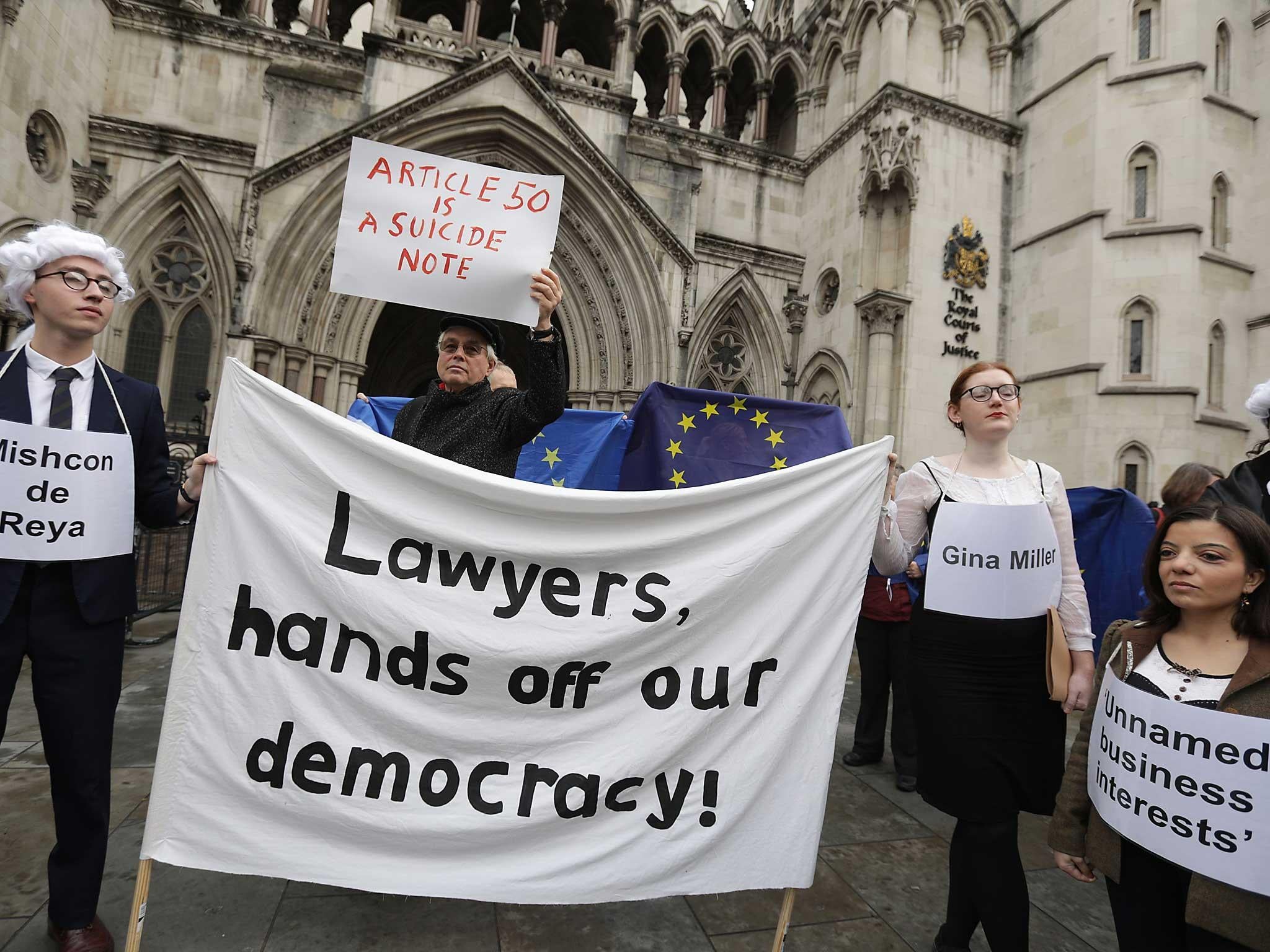Brexit could tear families apart by risking EU relatives' right to remain, High Court legal challenge warns
Court told British children who are looked after by EU citizens may find their families face uncertain futures following Brexit, as their right to remain could be at risk

Your support helps us to tell the story
From reproductive rights to climate change to Big Tech, The Independent is on the ground when the story is developing. Whether it's investigating the financials of Elon Musk's pro-Trump PAC or producing our latest documentary, 'The A Word', which shines a light on the American women fighting for reproductive rights, we know how important it is to parse out the facts from the messaging.
At such a critical moment in US history, we need reporters on the ground. Your donation allows us to keep sending journalists to speak to both sides of the story.
The Independent is trusted by Americans across the entire political spectrum. And unlike many other quality news outlets, we choose not to lock Americans out of our reporting and analysis with paywalls. We believe quality journalism should be available to everyone, paid for by those who can afford it.
Your support makes all the difference.Article 50 cannot be triggered because the British children of non-EU nationals could find their families torn apart by new immigration rules after Brexit, a court has heard.
The claims were made at the High Court as part of the on-going legal challenge to Brexit. The case is seeking to force Theresa May to require parliamentary approval before triggering Article 50, the legal mechanism which begins the process of EU withdrawal.
Representing the rights of families and children in the case, barrister Manjit Gill told the court Brexit may infringe the rights of non-EU nationals who are carers or guardians of British children or disabled people through uncertainty over whether they would be allowed to stay in the UK.
He said triggering Article 50 under current plans could contravene duties which the Government has to “British citizens, in particular children or the disabled, whose continued presence in this country is dependent on others who themselves are only permitted to reside because of the statutory rights derived from EU law.”
Mr Gill said the Government has thus far failed to address the issue of Zambrano carers case law which means that non-EU nationals who are the cares or guardians of British children are entitled to remain in the UK.
He warned: “As things stand at the moment, there is no mechanism in place to give them that leave [to remain in the UK]. They will therefore be subject, be committing criminal offences [by staying with children] and be liable to summary removal on the day that we leave the EU.”
Therefore, non-EU nationals wishing to stay in the UK after Brexit to look after or care for a child with British citizenship could find themselves committing a criminal offence. “We say that the giving of the Article 50 notice sets in train events which… will expose that affected class at a definable future point in time to criminal liability, and also liability to removal. The executive has no legal power, whether by the use of the prerogative or otherwise, either to create a new criminal offence or to expose… a class of persons to liability for an existing criminal offence at an ascertainable future point in time, to which they are not currently subject.”
The evidence was submitted to the court on the second day of a three day case which is due to conclude tomorrow. On Thursday, the court heard evidence from legal representatives for Northern Ireland and Gibraltar about how Brexit could negatively impact on the regions. It was also told that for the executive wing of government to trigger Article 50 without parliamentary approval would be an abuse of power because only parliament can revoke rights which it has given British citizens.
Representing the government, attorney general Jeremy Wright QC, James Eadie QC and Jason Coppel QC are defending Theresa May’s plan to trigger Article 50 without a parliamentary vote, on the grounds there is legal precedent for the executive acting on similar issues without backing from Westminster.
Join our commenting forum
Join thought-provoking conversations, follow other Independent readers and see their replies
Comments